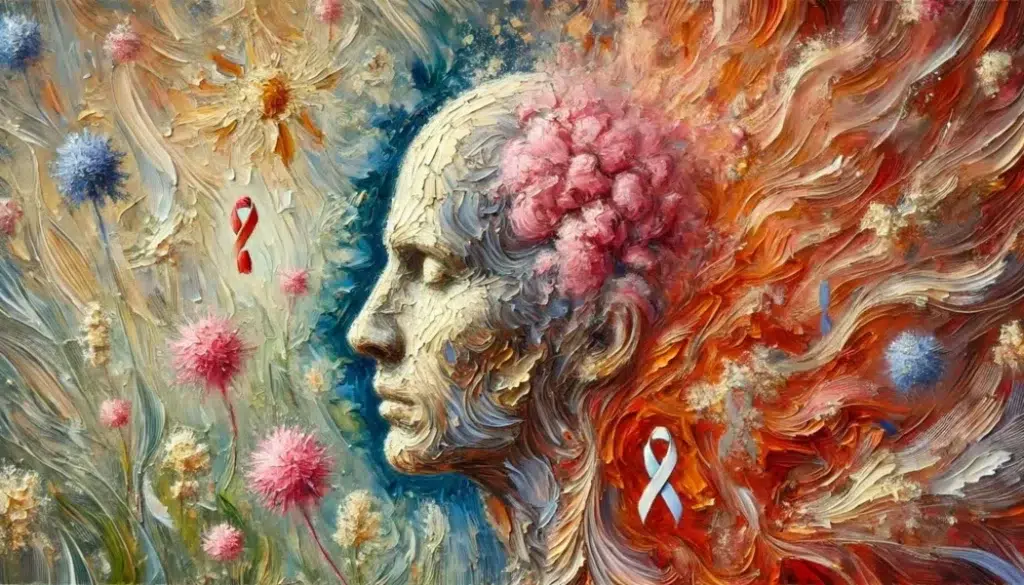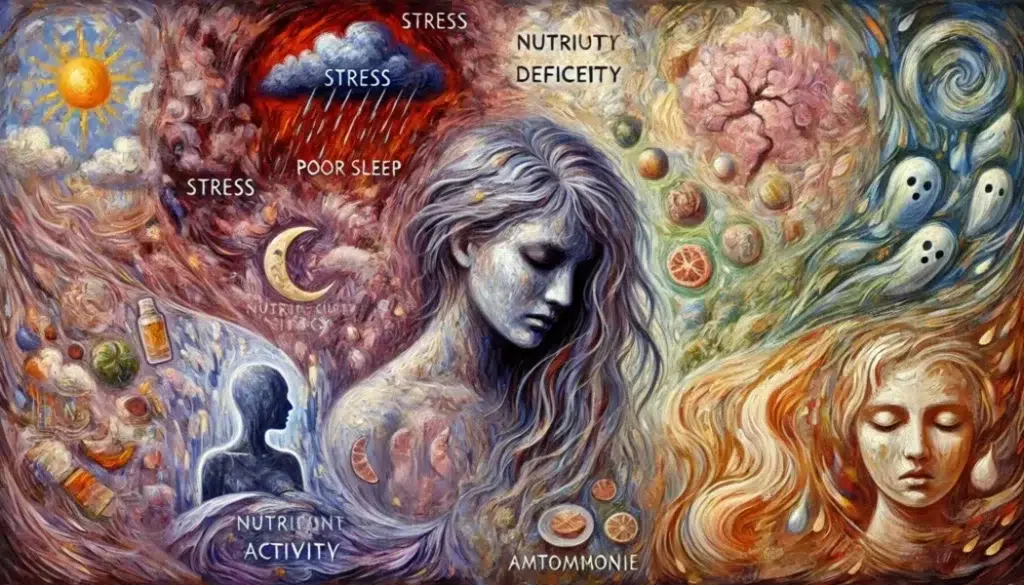🛡️ More Than Just a Cold – What Immunity Has to Do with Your Scalp
When most people think of a weakened immune system, they picture sniffles, fatigue, or the seasonal flu. But here’s a curveball: your scalp may be trying to raise the same red flag long before the thermometer comes out.
A healthy immune system doesn’t just protect you from viruses; it helps regulate the balance of your skin and scalp environment. When it’s compromised—whether by stress, poor nutrition, illness, or lack of sleep—your body’s first line of defense starts slipping. And guess who often takes the hit? Yep, your scalp. Cue the flaking, inflammation, sensitivity, or even hair loss.
In this article, we’ll break down how your immune system and scalp health are secretly tied together, what warning signs to look for, and what you can do to protect both. Spoiler alert: it’s not just about using a better shampoo. It’s about building strength from the inside out.
🌿 How Immunity and Scalp Health Are Connected
At first glance, your immune system and your scalp might seem like two separate departments—but they’re actually on the same internal team. Your scalp is part of your skin, and just like the rest of your body’s largest organ, it has its own immune defenses.
Here’s the short version: your immune system is the security detail that protects your skin from invaders—bacteria, fungi, allergens, even environmental pollutants. It also helps keep your scalp’s microbiome (a complex mix of bacteria and fungi) in balance. When your immunity is strong, this system hums along quietly. When it weakens, chaos begins.

A compromised immune system can trigger or worsen:
- Inflammatory scalp conditions like seborrheic dermatitis or psoriasis
- Excessive dryness or oiliness, due to poor regulation of skin barrier functions
- Increased sensitivity or itchiness, even without visible irritation
- Hair follicle damage, since follicles are highly sensitive to inflammatory signals
In short, immunity doesn’t just defend against illness—it’s essential for maintaining the peace on your scalp. When it weakens, the battlefield shifts to your hairline.
🚩 Signs Your Scalp Might Be Telling You Something’s Off
Your scalp doesn’t whisper—it shouts. The problem is, most of us don’t speak “scalp language,” so we ignore the signals until things get worse. But if your immune system is running low on fuel, your scalp will often be one of the first places to throw up a flare.
Here are the red flags to watch for:
- Persistent flaking or dandruff that doesn’t respond to anti-dandruff shampoos
- Sudden increase in itchiness, even if your hair routine hasn’t changed
- Redness or burning sensations on the scalp, especially around the hairline or crown
- Unusual hair shedding or thinning, often patchy or excessive after stress or illness
- Sores or bumps that heal slowly or keep returning
- Scalp tightness or discomfort, especially in colder weather or after illness

These symptoms aren’t random—they’re your body’s way of saying, “Hey, something deeper is off.” You might still feel “fine” otherwise, but your immune system could be quietly struggling in the background.
The key takeaway? If your scalp’s acting up without an obvious trigger, it may be time to look beneath the surface. Literally.
⚠️ Common Causes of Weakened Immunity That Affect Your Hair and Scalp
You don’t need to catch a cold to have a weakened immune system. Modern life is a sneaky saboteur, and your immune health often pays the price quietly—until your hair and scalp start waving the white flag.
🔸 Chronic Stress
Stress is like the invisible hand pulling all the wrong strings. It pumps out cortisol, a hormone that, in excess, suppresses immune function and increases inflammation. Your scalp gets less blood flow, more oil, and possibly flare-ups of dandruff or eczema. It’s no coincidence that hair starts falling out after intense emotional periods.
🔸 Nutrient Deficiencies
Your immune system can’t function without the right tools. Deficiencies in zinc, vitamin D, iron, vitamin B12, and essential fatty acids weaken both your immunity and your scalp’s ability to regenerate healthy skin and hair.
🔸 Poor Sleep
Sleep is when your body runs updates and repairs damage. Chronic sleep deprivation weakens immune responses and delays healing, leaving your scalp more vulnerable to irritation and infection.
🔸 Autoimmune Disorders
In conditions like lupus or alopecia areata, the immune system attacks hair follicles by mistake. Even milder imbalances can disrupt follicle function or cause scalp sensitivity.

🔸 Infections and Illness
Recent illness, especially viral infections or extended use of antibiotics, can disrupt your gut microbiome and, by extension, your immune balance. This affects nutrient absorption and the protective barrier of your skin and scalp.
🔸 Hormonal Shifts
Immune performance is tightly linked to hormone balance. Think of postpartum hair loss, thyroid issues, or perimenopause—all of which impact both immunity and scalp condition.
🌱 Supporting Both Your Immune System and Your Scalp Health
When your scalp’s under siege, it’s tempting to just swap shampoos or blame the weather. But if the root of the problem is your immune system, the real fix comes from within. Here’s how to fortify your internal defenses—and help your scalp recover in the process.
🥗 Nourish From the Inside Out
Start by upgrading your plate. Focus on foods rich in:
- Vitamin C & E – antioxidants that reduce scalp inflammation
- Zinc – helps regulate oil glands and immune response
- Omega-3s – reduce dryness and irritation
- Vitamin D – essential for immune balance and hair follicle cycling
- Probiotics – support your gut microbiome, which directly impacts immunity
Think leafy greens, berries, nuts, fatty fish, eggs, and fermented foods like kefir or kimchi. Your hair’s favorite buffet.

💊 Supplement Wisely
If your diet isn’t enough (or stress levels are sky-high), supplements can help fill the gaps. Popular choices include:
- Vitamin D3 + K2 combo
- Zinc picolinate
- Multivitamins for hair & skin
- Ashwagandha or Rhodiola – for stress-related immune drops
Always check with a healthcare provider before adding new supplements, especially if you’re on medications.
🧴 Scalp Care That Soothes, Not Irritates
Your external routine matters too. Choose products that support a healthy barrier:
- Sulfate-free shampoos with anti-inflammatory ingredients like niacinamide, aloe vera, or green tea extract
- Scalp serums with probiotics or peptides to rebalance and calm irritation
- Avoid harsh treatments, heat, or scratching—these just make a sensitive scalp worse
🧘♂️ Don’t Underestimate Lifestyle Tweaks
- Prioritize consistent sleep (7–9 hours)
- Build in stress-reducing routines like exercise, mindfulness, or just stepping outside
- Avoid polluted environments or smoking if possible—it all contributes to oxidative stress
👩⚕️ When to Seek Professional Help
Sometimes, no matter how healthy you eat or how many serums you massage into your scalp, things don’t improve. That’s when it’s time to call in the pros.
Here’s when you shouldn’t wait:
- Sudden or patchy hair loss, especially if it happens rapidly or in clumps
- Persistent inflammation, sores, or bumps that don’t heal or keep coming back
- Extreme sensitivity—pain or burning sensation on the scalp that’s disrupting your day
- Unexplained symptoms like fatigue, brittle nails, or recurring infections (which may signal autoimmune issues or deficiencies)
- Nothing helps—you’ve tried changing products, diet, sleep, and still no improvement
A dermatologist or trichologist can assess your scalp directly, while a general practitioner or functional medicine doctor can test for underlying immune or hormonal imbalances. It’s not about panic—it’s about getting clarity and support so you don’t stay stuck guessing.

Remember: the scalp may be “on the outside,” but its health is a reflection of what’s happening inside.
✨ Conclusion: Strength from Within Reflects on the Surface
It’s easy to overlook your scalp until it starts making noise—itching, flaking, shedding. But more often than not, those surface-level symptoms are messengers from a deeper imbalance.
Your immune system is the silent architect of your skin’s resilience, including the scalp. When it’s running low, your body starts pulling back resources from “non-essentials” like hair and skin maintenance, focusing instead on survival. That’s when things go haywire at the roots.
By listening to your scalp, you’re not just treating a cosmetic issue—you’re tuning in to your body’s broader health status. Supporting your immunity with the right nutrition, sleep, stress management, and thoughtful hair care isn’t just holistic talk—it’s the practical path to real, visible improvement.
So the next time your scalp’s throwing a tantrum, don’t just reach for the shampoo. Ask yourself what’s happening inside—because that’s where lasting change begins.
Stay with us — the best is yet to come.
By following our advice, you’re doing the most you can for your hair.
Be the first to know when we publish new guides, tests, and proven strategies for stronger, healthier hair.
👉 Visit the About Me page to learn more about my journey, mission, and why helping people with hair health is so personal to me.
Want healthier, stronger hair? Discover 8 science-backed habits that protect your scalp and boost natural growth. Get your free PDF guide today!
Disclaimer: This article is for informational purposes only and is not a substitute for professional medical advice. Sensitive claims are supported with scientific references, and full product details can always be found on the official websites of the respective manufacturers or distributors.
Some links in this article are affiliate links. If you choose to make a purchase through them, I may earn a small commission at no extra cost to you — helping me keep HairGrowGenius running. Thank you for your support!

❓ FAQ: Immune System and Hair Health
🧬 Can a weak immune system really affect your hair?
Yes. A weakened immune system can lead to scalp inflammation, reduced circulation, and even trigger autoimmune conditions like alopecia areata that attack hair follicles directly
🦠 What are common hair-related symptoms of a weak immune system?
Symptoms can include excessive shedding, thinning hair, dry or inflamed scalp, and delayed hair regrowth after loss.
🥗 How can I support both my immune system and hair health?
Focus on a nutrient-rich diet (vitamins A, C, D, E, zinc, iron, protein), regular sleep, moderate exercise, stress reduction, and possibly adaptogens or immune-balancing supplements
💊 Are there treatments that help when hair loss is immune-related?
Yes. Treatments like corticosteroids (for autoimmune causes), anti-inflammatory shampoos, scalp serums, and natural DHT blockers may help — especially when combined with immune support strategies.
🧾 Last updated: June 2025 based on immunology and dermatology research.


Leave a Reply